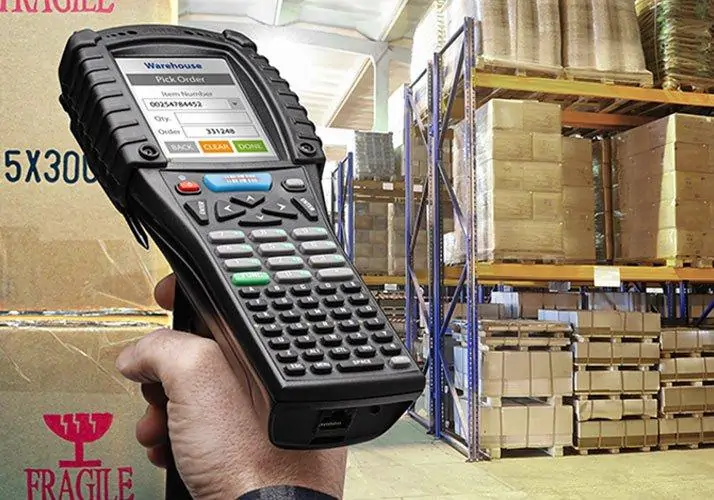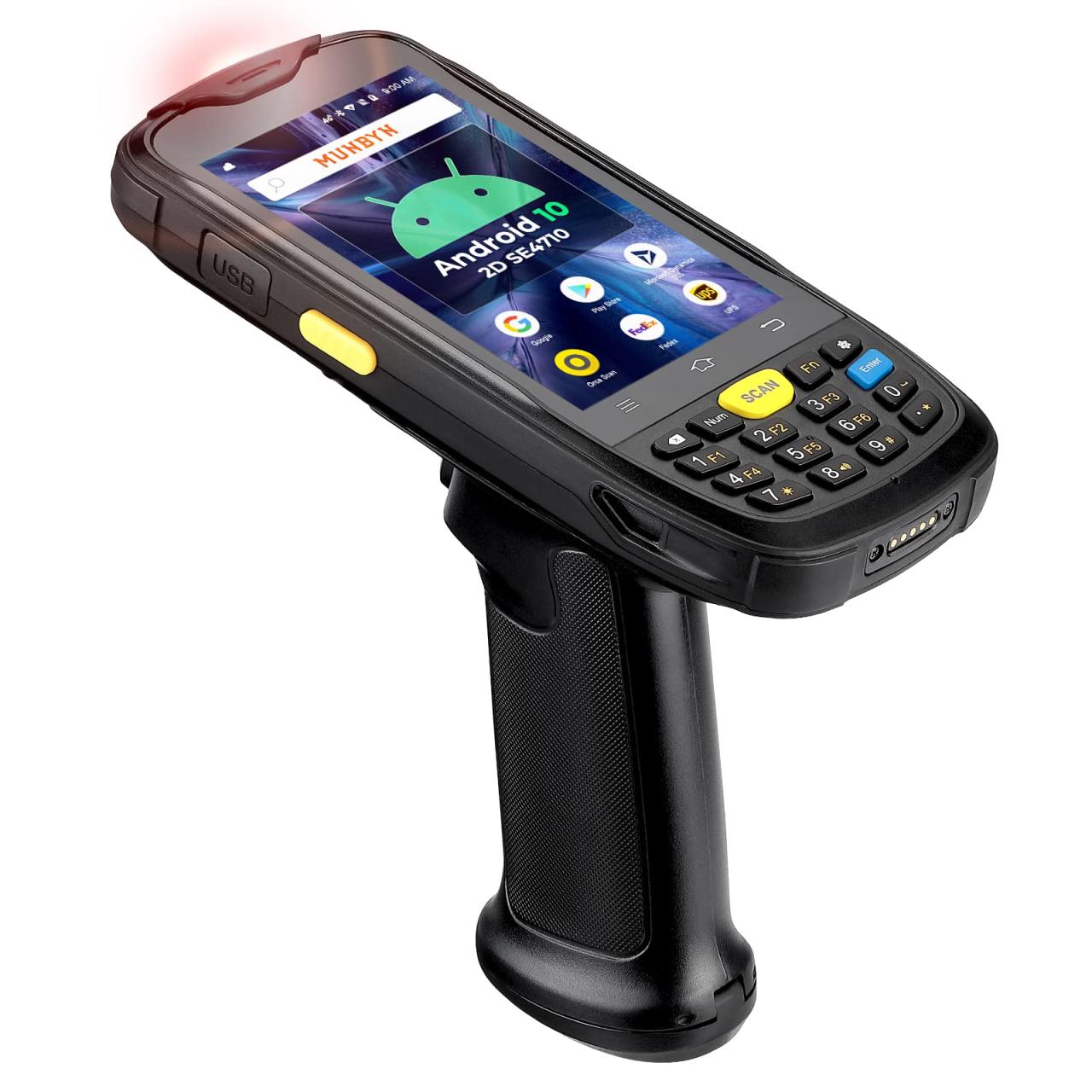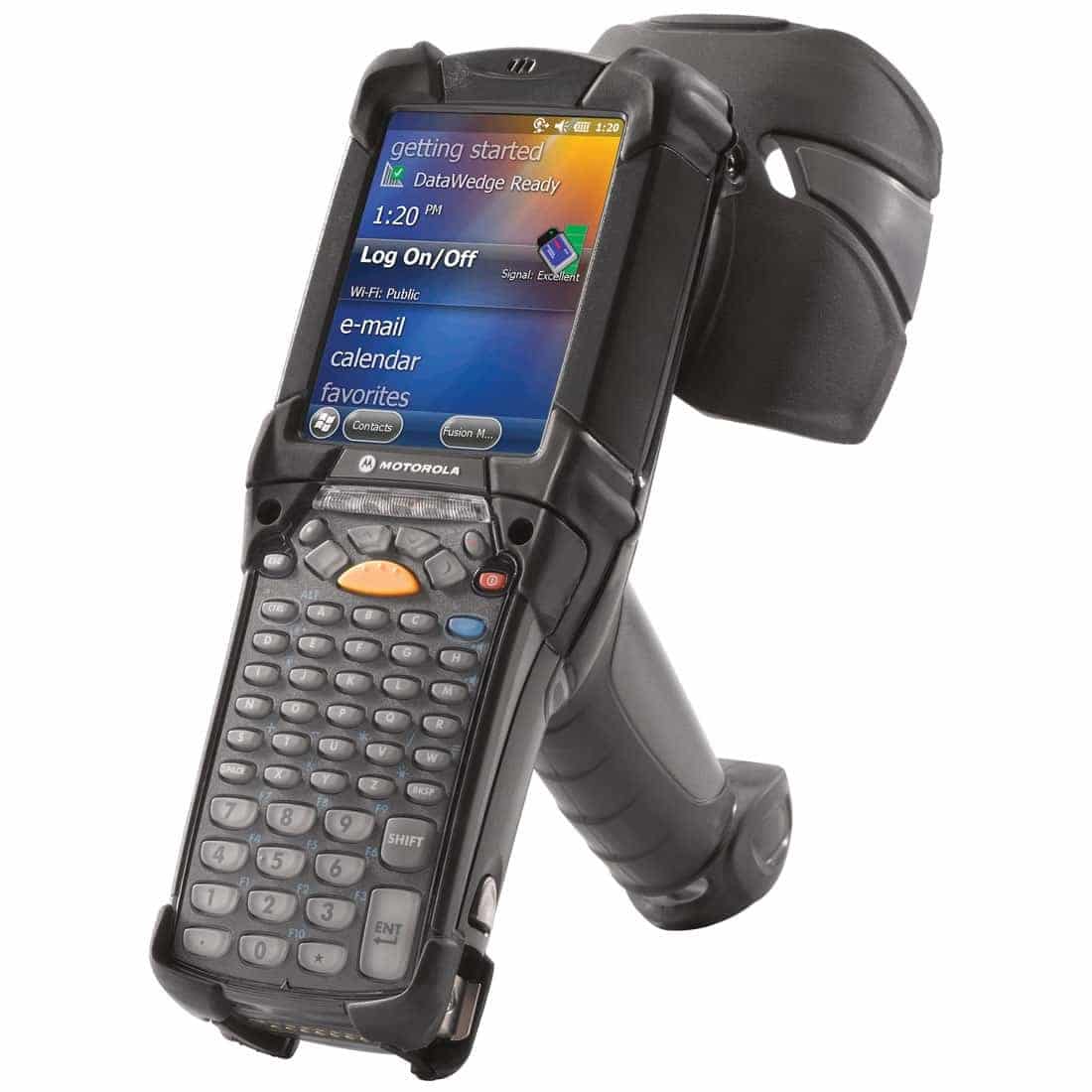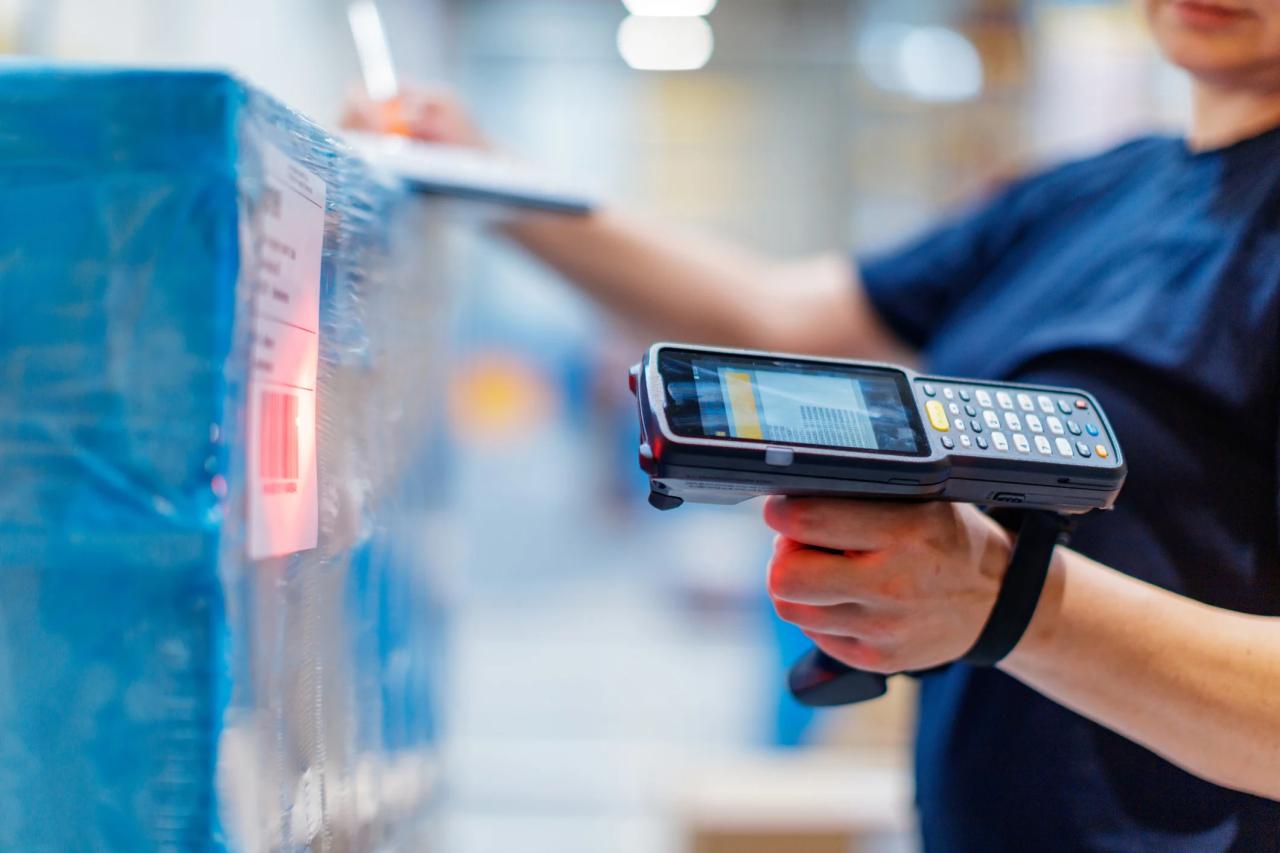In the realm of small business, where efficiency and accuracy reign supreme, the best inventory scanner for small business emerges as an indispensable tool. These devices empower entrepreneurs to gain real-time visibility into their stock levels, streamline operations, and elevate customer satisfaction.
Inventory scanners have revolutionized the way small businesses manage their inventory. By automating the data collection process, they eliminate the risk of human error, improve accuracy, and enhance overall efficiency.
Inventory Scanner Features and Benefits

Inventory scanners are a valuable tool for small businesses. They can help businesses keep track of their inventory, improve efficiency, and reduce errors.
Key features of inventory scanners include:
- Barcode scanning: Inventory scanners can scan barcodes on products, which allows businesses to quickly and easily identify and track items.
- Data collection: Inventory scanners can collect data about products, such as the product name, description, price, and quantity on hand.
- Reporting: Inventory scanners can generate reports that provide businesses with valuable information about their inventory, such as the total number of items in stock, the value of the inventory, and the items that are selling the best.
The benefits of using inventory scanners include:
- Improved accuracy: Inventory scanners can help businesses improve the accuracy of their inventory records. By scanning barcodes, businesses can eliminate errors that can occur when items are manually entered into a system.
- Increased efficiency: Inventory scanners can help businesses increase efficiency by automating the process of tracking inventory. This can free up employees to focus on other tasks, such as customer service or sales.
- Reduced costs: Inventory scanners can help businesses reduce costs by reducing the amount of time spent on inventory management. This can free up employees to focus on other tasks, such as customer service or sales.
Here are some examples of how inventory scanners can improve efficiency and accuracy:
- A small business that sells clothing can use an inventory scanner to quickly and easily scan the barcodes on items as they are received. This can help the business to quickly and easily track the number of items in stock and to identify any items that are out of stock.
- A small business that sells food can use an inventory scanner to scan the barcodes on items as they are sold. This can help the business to quickly and easily track the number of items sold and to identify any items that are selling well.
- A small business that sells electronics can use an inventory scanner to scan the barcodes on items as they are repaired. This can help the business to quickly and easily track the number of items repaired and to identify any items that need to be repaired.
Types of Inventory Scanners

Inventory scanners are devices used to capture and store data about inventory items. There are several types of inventory scanners available, each with its own advantages and disadvantages.
The most common type of inventory scanner is the barcode scanner. Barcode scanners use a laser or camera to read the barcode on an inventory item and decode the data stored in the barcode. Barcode scanners are relatively inexpensive and easy to use, making them a good option for small businesses.
Another type of inventory scanner is the RFID scanner. RFID scanners use radio waves to identify and track inventory items. RFID scanners are more expensive than barcode scanners, but they offer several advantages, including the ability to read tags from a distance and the ability to track items in real time.
Finally, there are also handheld inventory scanners. Handheld inventory scanners are small, portable devices that can be used to scan inventory items on the go. Handheld inventory scanners are typically more expensive than barcode scanners and RFID scanners, but they offer the advantage of being able to be used in a variety of locations.
Barcode Scanners
- Pros:Inexpensive, easy to use, can read barcodes from a variety of surfaces.
- Cons:Can only read barcodes, not RFID tags, may not be able to read barcodes that are damaged or obscured.
- Examples:Symbol LS2208, Honeywell Voyager 1250g, Zebra DS2208.
RFID Scanners
- Pros:Can read RFID tags from a distance, can track items in real time, can be used to identify and track items that are not barcoded.
- Cons:More expensive than barcode scanners, may not be able to read RFID tags that are damaged or obscured.
- Examples:Impinj Speedway Revolution R420, Zebra RFD2000, Alien Technology ALR-9900.
Handheld Inventory Scanners
- Pros:Portable, can be used in a variety of locations, can scan barcodes and RFID tags.
- Cons:More expensive than barcode scanners and RFID scanners, may not be as durable as other types of inventory scanners.
- Examples:Motorola MC3300, Honeywell Dolphin 99EX, Zebra TC25.
Considerations for Choosing an Inventory Scanner

When selecting an inventory scanner, it is crucial to consider several key factors that align with your specific business needs. These factors include scanner range, accuracy, durability, and compatibility with your existing systems.
Scanner Range
- The scanner’s range determines the distance from which it can effectively scan barcodes. Consider the size of your warehouse or retail space and the distance between items to ensure the scanner’s range is sufficient.
- For large warehouses or open spaces, long-range scanners with a range of up to 100 feet or more may be necessary. For smaller areas or close-range scanning, shorter-range scanners may be adequate.
Accuracy, Best inventory scanner for small business
- Accuracy refers to the scanner’s ability to correctly read and decode barcodes. High accuracy is essential to avoid errors and ensure efficient inventory management.
- Consider the types of barcodes you use and choose a scanner that is designed to accurately read those codes. Some scanners may specialize in reading specific barcode formats, such as QR codes or RFID tags.
Durability
- Durability is important for scanners that will be used in harsh or demanding environments, such as warehouses or construction sites. Look for scanners with rugged construction and IP ratings that indicate their resistance to dust, water, and other elements.
- If the scanner will be used in a mobile environment, consider its weight and portability. Lightweight and ergonomic scanners are more comfortable to use for extended periods.
Best Inventory Scanners for Small Businesses
Small businesses need efficient and reliable inventory scanners to manage their stock effectively. These devices help businesses track inventory levels, streamline operations, and reduce errors. Here are some of the top inventory scanners for small businesses:
Scanner Comparison Table
| Scanner Name | Features | Pros | Cons |
|---|---|---|---|
| Honeywell Voyager 1250g | Laser scanner, Bluetooth connectivity, rugged design | Fast and accurate scanning, durable, long battery life | Limited range, not suitable for large warehouses |
| Zebra DS2278 | 2D imager, Bluetooth connectivity, IP54 rating | Versatile scanning capabilities, durable, easy to use | Slightly more expensive than other options |
| Datalogic PowerScan 9100 | 2D imager, wired and wireless options, ergonomic design | High scanning performance, comfortable to use, customizable | May not be suitable for all types of barcodes |
| CipherLab 1562 | 2D imager, rugged design, IP65 rating | Durable, waterproof, fast scanning speed | Battery life could be better |
Tips for Using Inventory Scanners Effectively

Inventory scanners can streamline your inventory management processes, but using them effectively is key. Here are some tips to help you get the most out of your inventory scanner:
Scanning Accuracy
- Ensure your scanner is properly calibrated to minimize errors.
- Scan items from multiple angles to capture all barcodes.
- Verify scanned data regularly to identify and correct any discrepancies.
Data Management
- Establish a clear process for data entry and storage.
- Use a dedicated inventory management software to centralize and organize data.
- Regularly back up your inventory data to prevent loss.
Integration
- Integrate your inventory scanner with your POS system to update inventory levels in real-time.
- Connect it to your accounting software to streamline inventory costing and reporting.
- Consider integrating with other systems, such as CRM or ERP, to enhance data sharing and automation.
Summary
In conclusion, the best inventory scanner for small business is an investment that pays for itself in the long run. By choosing the right scanner for your specific needs, you can unlock the potential for increased profitability, enhanced customer satisfaction, and a streamlined inventory management process that will empower your business to thrive.
Frequently Asked Questions: Best Inventory Scanner For Small Business
What are the key features to look for in an inventory scanner for small businesses?
Accuracy, durability, scanning range, compatibility with your business systems, and ease of use.
What are the benefits of using an inventory scanner for small businesses?
Improved accuracy, reduced labor costs, increased efficiency, enhanced customer satisfaction, and better decision-making.
How can I choose the best inventory scanner for my small business?
Consider your business needs, the types of inventory you have, your budget, and the features that are important to you.